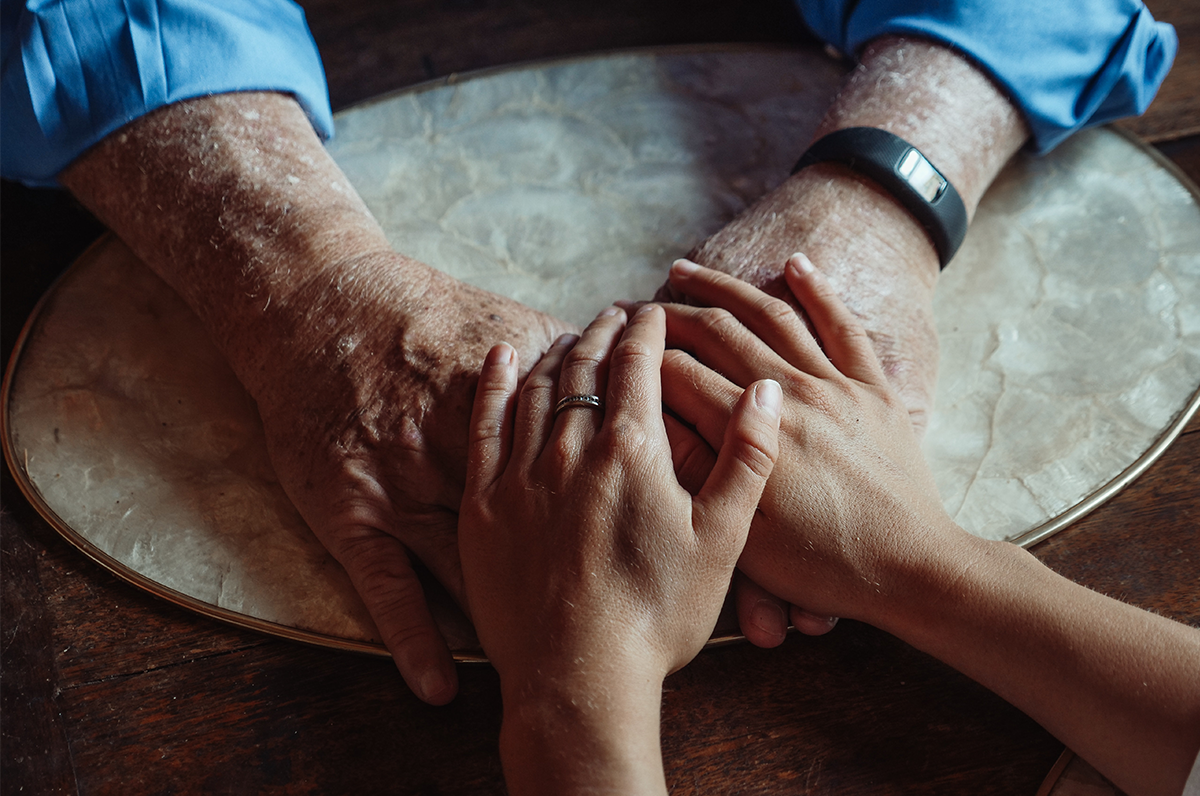What is metta?

As the world continues to feel uncertain and unpredictable, the word ‘meta’ keeps finding its way into conversation (and the news). Be it skepticism about the use of social media or the general ills of society, over the past few years, many people have experienced a shift in priorities and relationship patterns—and are balancing a sense of isolation with a desire for more connectedness.
For better or worse, it’s not uncommon that we might find community with others through negative circumstances. Banding together during tragedy or chaotic situations can help us reach common ground with others as we contemplate life’s broader lessons and questions. Whatever one’s view on social media, how it’s changing, and its effect on society, one doesn’t often associate the term ‘meta’ with an act of love or compassion, and almost never thinks about it with an extra ‘t’.
So, what is metta if it’s not meta?
By contrast, metta is a Buddhist practice of loving-kindness. As the seasons change and the weather turns colder, it is tempting to focus on external challenges rather than the opportunities that a time of hibernation and turning inwards presents. Whether schedules ramp up with activities and holiday events or slow to a lonely crawl, crisp mornings and early sunsets can provide a space for reflection on compassion and connectedness—two of the basic tenets of metta.
Sharon Salzburg, a leading expert on metta, has been sharing the practice for decades through retreats, talks, and numerous books that aim to foster a sense of compassion and connection for all beings—whether it be a stranger on the street, one’s most trying family member, or one’s self. Admittedly, these acts can be difficult to embrace, even on the best of days. Fortunately, metta is a practice that paves a path to follow whenever one is trying to extend a sense of warmth to oneself or to another, especially on a physically or emotionally chilly day.
How to practice metta
Essentially, the practice of metta asks us to repeat a set of phrases over and over with someone in mind—friend, loved one, stranger, or self. Phrases often include something like, “May I/you/we be safe. May I/you/we be happy. May I/you/we be healthy. May I/you/we live with ease.” As with any mindfulness or meditation practice, starting can be as much of a challenge as cultivating consistency, but, because metta is a discipline based on opening the heart, it also offers endless chances to be gentle with oneself as one tries again and again.
The phrases that are repeated can be varied to align with whatever feels most comfortable and authentic to the one saying them, but I’d encourage any practitioner to keep it simple. These phrases are meant to be extended to all beings, from beloved pets and mentors to those with whom one most struggles. By offering these well-wishes, we give ourselves the opportunity to decrease feelings of isolation and make space for increased joy and connection that can otherwise feel as hard to hold on to as the dwindling daylight.
Turning metta into a daily practice
As the seasons shift in both weather and perspective, we might use this time to slow down and implement a loving-kindness practice, no matter how brief, by simply thinking of someone who could use a little warmth. And perhaps in quietly reciting, “May you be safe. May you be happy. May you be healthy. May you live with ease,” we might also realize that the stranger on the street, the most trying family member, or one’s self might be one-and-the-same person—which could be the most meta, and deserving of metta, of all.

Anna Hickner, PsyD
Psychologist at The Health Center at Hudson Yards
Anna Hickner, Psy.D. is a Supervising Psychologist and Assistant Professor under the Icahn School of Medicine at Mount Sinai. She specializes in depression, anxiety, grief/loss, chronic medical conditions, trauma, and stress related to interpersonal relationships and life transitions. As a trained yoga and meditation instructor, Dr. Hickner provides a safe, empathic, and affirmative environment by using a holistic approach to wellness. Dr. Hickner speaks English and Spanish, and has extensive experience working with adults from a variety of backgrounds including race, sexual orientation, gender identity, and place of origin.